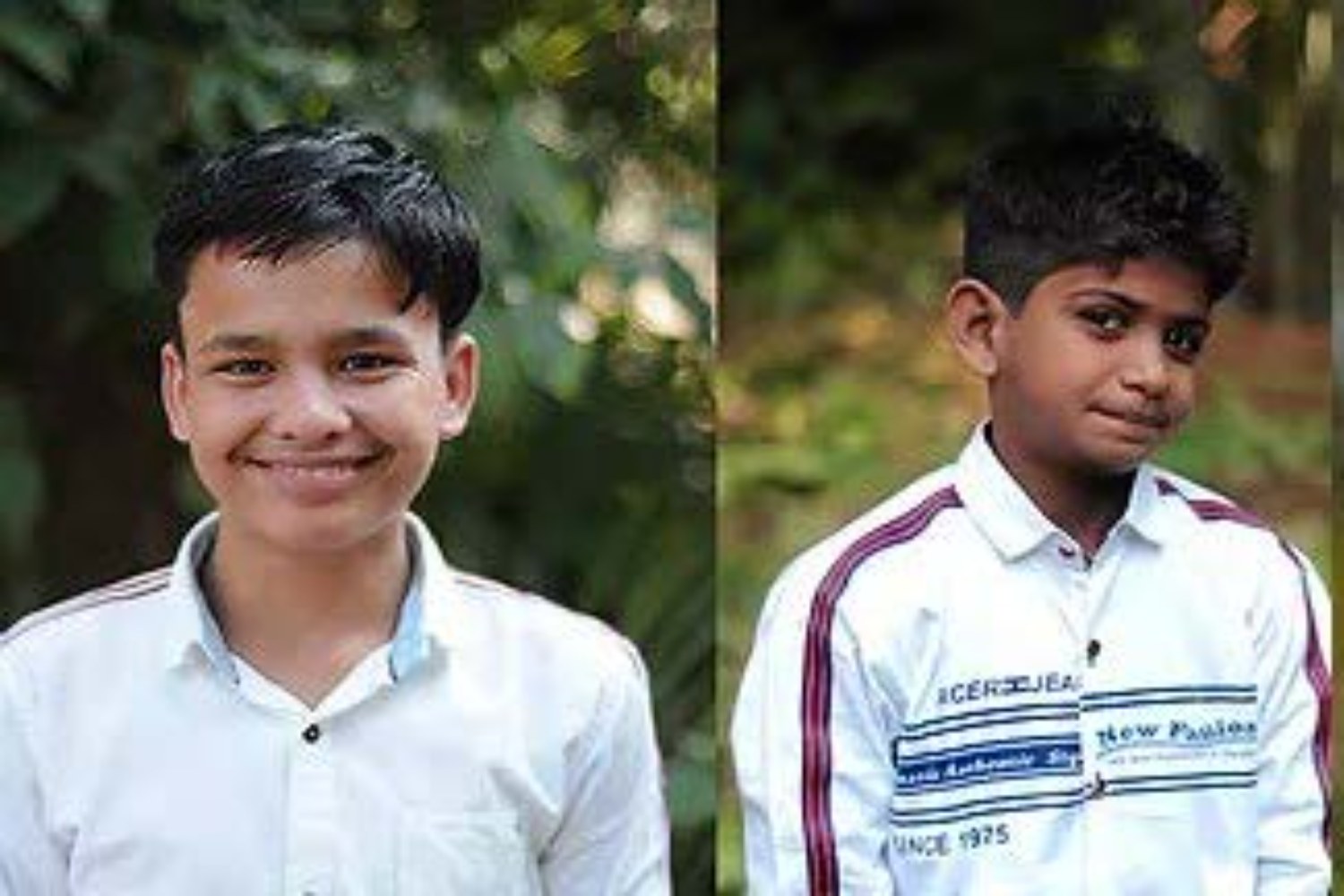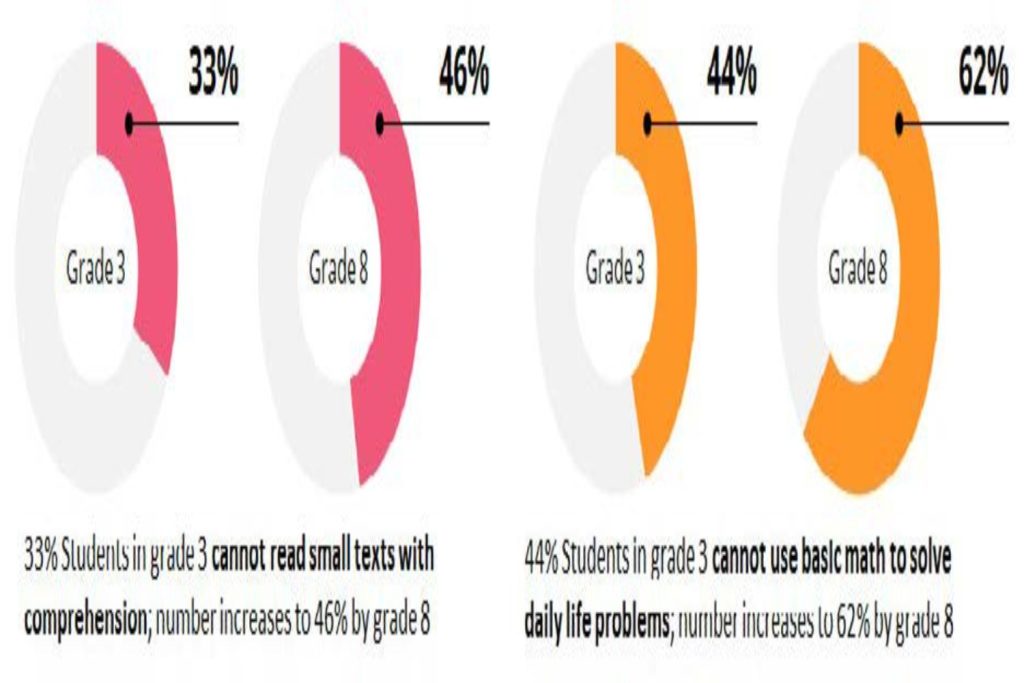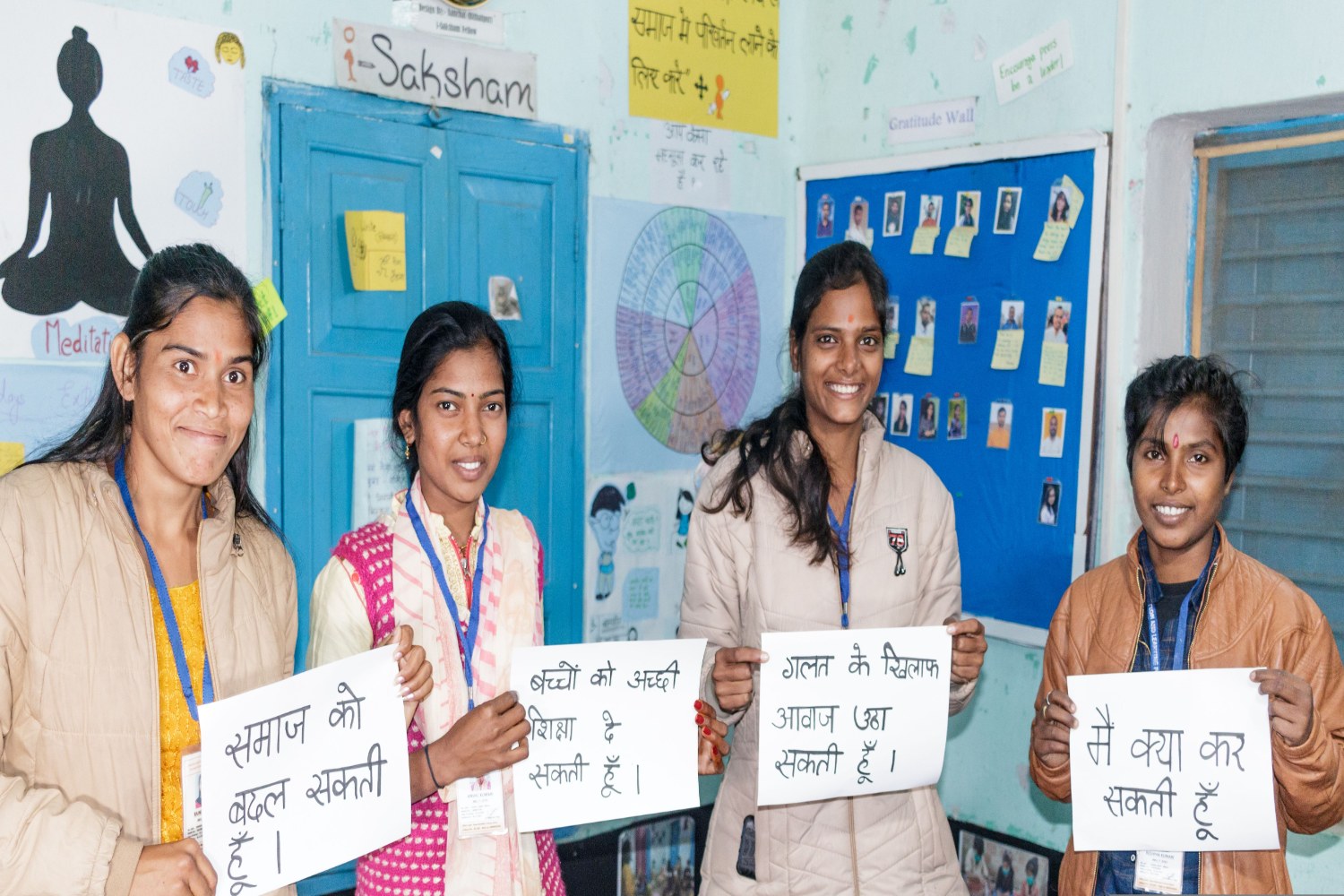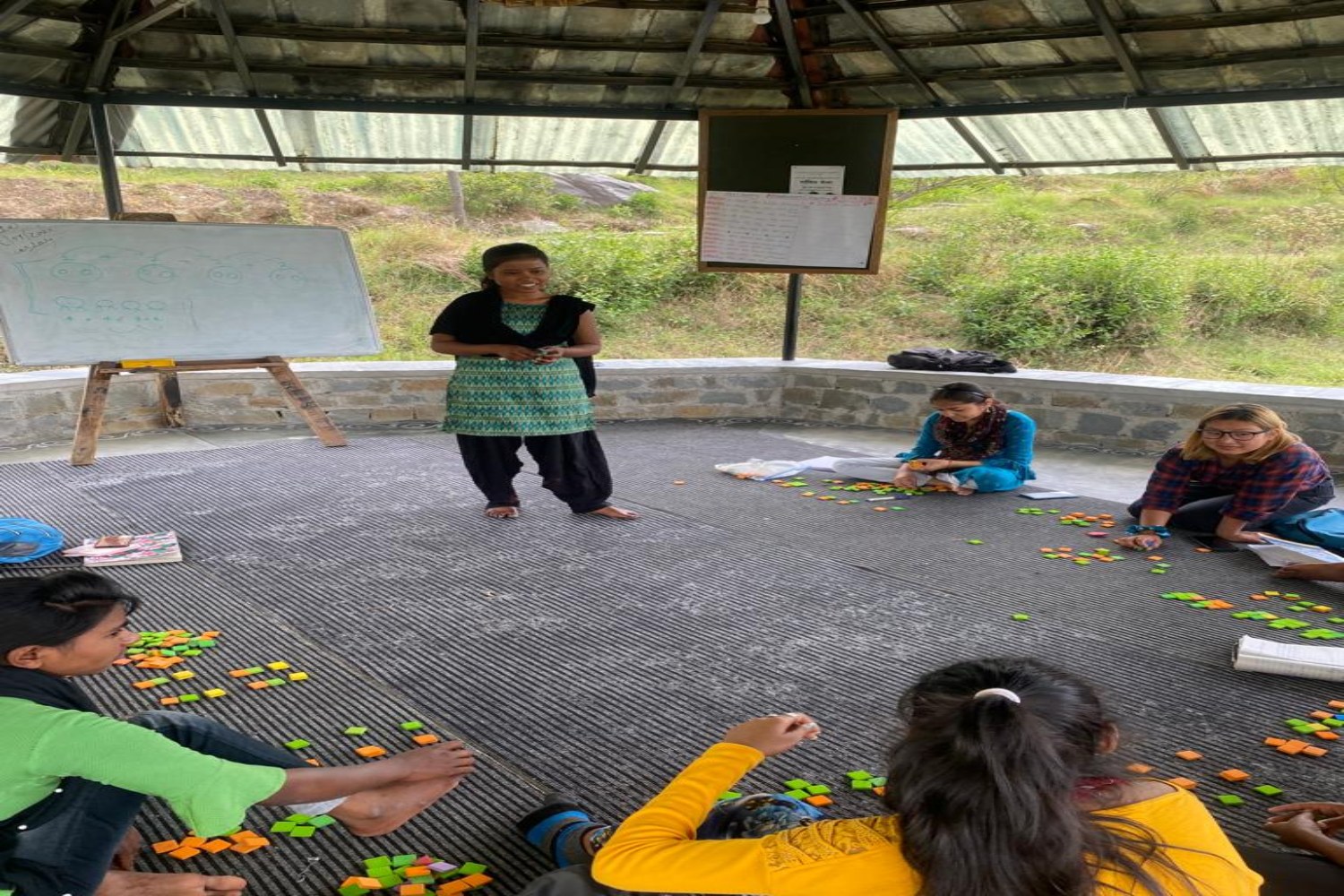Teach For India : A Path of Learning
In an article on the journey of the Teach For India (TFI) Fellowship, Shaheen Mistri and Manasi Jain map out the sojourn of this initiative and the various phases through which it has grown and evolved.

Why We Do What We Do: The Crisis
India, with 250 million children enrolled in 15 lakh schools, has the largest school system in the world. Over the past decades, we have made strides in enrollment for all grades across rural and urban areas. However, we have failed to see a rise in student outcomes with the vast majority of our students not building grade level competencies.
According to National Education Policy 2020, over five crore students in elementary grades do not attain foundational literacy and numeracy. According to UNICEF, more than 80% of our children fail to receive the foundational academic skills and 21st century skills required to succeed.
Post-pandemic, UNESCO estimated that our children have lost two months for every month they have not attended school. This amounts to more than 30 months of learning loss. This educational inequity has lasting implications on individual happiness, fulfillment and well-being. It has the potential to further perpetuate the cycle of poverty as well.
Teach For India (TFI) believes that all children can and must attain an excellent education, and that collective leadership is the path to that vision. With the scale and diversity of India, and the depth needed to truly unleash an individual’s greatest potential, we see that it will take a movement of leaders – teachers, students, parents and others – to educate every Indian child.
Our Journey
The Teach For India Fellowship is for bright, committed young people, recruited to teach full-time in low-income schools for two years. In 2009, Teach For India began with the conviction that every child had the right to an excellent education, and that developing leaders committed to educational equity was the single biggest thing we could do to realize that conviction. Since then, our journey has seen three distinct phases.

Phase 1 (2009 – 2013): We started with 87 fellows spread across 34 schools and 2,400 children in Mumbai and Pune. The team faced multiple challenges in the first few years. The first was finding high need schools that also met the basic criteria for success – classrooms, blackboards, bathrooms – for fellows to teach in.
In India, career and life choices are largely family decisions. The TFI team had to ensure that the strongest young people – those with the most options available – actually chose a two-years long Teach For India Fellowship.
By 2013, the idea of Teach For India had gained momentum. We had expanded to Delhi, Hyderabad, and Chennai, and were in the process of opening an Ahmedabad site. Our fellow count had increased from 87 to 500 and the student numbers had increased by 10x to 23,500.
Phase 2 (2013 – 2017): As the model got validated, we started asking some hard questions – what was our vision of student and fellow impact? How could we go beyond the curriculum, and find ways to create a deep impact on our students? In 2013, we established a ‘Student Vision’ which defined three components of an excellent education: academic achievement, values and mindsets, and access and exposure.
Our hypothesis was that these were the most effective when they were seamlessly and consistently integrated. Our student vision was accompanied by three commitments for fellows: commitment to personal transformation, collective action and educational equity.
In this phase, along with deepening our impact, we expanded our fellowship program to our seventh city – Bengaluru. By 2016, our alumni had outgrown the number of fellows each year. We began thinking about what it would mean to accelerate the potential of our alumni as we infuse the system with more leaders.
We launched InnovatED, a nation-wide education incubator for early-stage alumni entrepreneurs. We also launched Firki, an online teacher education platform, that houses carefully curated teaching resources and teacher development courses to change how teachers teach.
The ‘Maya Musical’ Transformation
Maya is a musical, collaboratively developed by TFI, with an original script, that tells the story of Princess Maya’s journey. Maya Musical took 30 children on a life-changing journey of self-discovery. The Maya children traveled across the country, performed at conferences and public spaces, did acts of kindness to practice their values, and spread happiness in 100 ways through the arts. It culminated in ten shows across Mumbai and Pune.
Maya was a demonstration of what is possible for low-income children with no previous exposure to the arts. It was a symbol of the kind of education all children deserve – one that integrates academics, values and mindsets, and exposure and access.
Priyanka started as a student at Epiphany High School, Pune, and was raised by a single mother. Before Maya, Priyanka dreamed of being a housewife. However, the musical experience showed her that she had the courage to take risks and achieve much more than she imagined.
She went on to secure her diploma from UWC, Italy. She later studied psychology, theater and the Italian language at Franklin and Marshall College in the US. She has returned to her community in Pune, and is currently teaching 4th and 7th Grade students as a TFI Fellow.
Phase 3 (2017-2022): In this phase we laid out the goal of helping one million children attain an excellent education by 2022. Two years into Phase 3, tensions started to emerge against the ambitious goals that we had set for ourselves. How do we maintain quality in our recruitment, programs, and everything else we do, while scaling significantly? Are we here to build teachers or lifelong leaders for educational equity?
After a year-long exercise aimed at strengthening the organizational backbone, the team made some hard choices. We stabilized the fellowship size for a few years, while bringing consistency in the quality of the program across our regions and supplementing it with innovations that would help us scale our impact beyond the fellowship. We embarked on our first attempt at capturing the impact of our alumni over the last 10 years.
As a part of Phase 3, we launched TFIx, an incubator to support entrepreneurs to start fellowships across remote parts of India that serve the most vulnerable children. We set up the platform ‘Kids Education Revolution’ with the goal of making India’s children partners in reimagining education.
In 2020, we released our Leadership Development Journey 2.0. We also evolved a version of the 2013 model of student and fellow impact. We laid down three commitments to Self, Others, and India, for students, fellows, alumni, and anyone else who is on the path towards educational equity. When the pandemic struck, we expanded our work to relief and rations, holistic support for our children and communities, and pivoted to a new blended form of education.
Today, we are a movement of 1,000 Fellows teaching 32,000 children and 4,200 alumni who are collectively reaching 33 million children across India. Our students have a graduation rate of 96%. We are the largest fellowship in the country working with 270 schools across the nation. 99% of the principals in the schools where we work believe that we are having a positive impact. 77% of our alumni continue to work in the social sector across a multitude of roles.
Our community is thriving with entrepreneurs who have founded 150+ organizations working towards different problems in the puzzle of educational inequity. We have recently launched our eighth site – Kolkata!
Our Model
We find promising leaders: We recruit and select high-potential candidates to serve as fellows who commit to teach for two years, full-time, in India’s low-income schools. The selection process is highly selective. Only 6-8% of applicants make it through. Over the past 13 years, over 120,000 people have applied to the Fellowship. Our applicants are fresh graduates from reputed institutions such as Lady Sri Ram College, St. Xaviers College, Fergusson College, and New York University. We have professionals from companies like Citigroup, American Express, Amazon, ZS Associates, KPMG, etc. applying as well.
Our fellows impact schools and communities: Fellows work as full-time teachers in government and low-income private schools. They receive training at induction, and are supported with on-going training throughout the two years.
Our fellows and students not only work towards ambitious academic outcomes, they also impact their schools and communities through targeted initiatives. A longitudinal study by Columbia University over a period of 4 years (2012-2016) showed that Teach For India students grew 5 times in English and 2.5 times in Math, as compared to students in non-TFI classrooms. In their second year, fellows undertake a ‘Be the Change’ project to solve the pressing problems they see in their communities. Many of these projects have gone on to become social organizations in the future.
The Magic of Pencilbricks
Rehan and Basit are two 9th graders from a Teach For India classroom in Ahmedabad. Four years ago, they started an organization called Pencilbricks with their Fellows that works towards providing quality education to the children of their community. They run 10 mini learning centers through which Teach For India students teach the younger children in the community. (Missing image)
We cultivate life-long leadership: We believe that great teachers do what great leaders do. Our fellows face diverse challenges in their classrooms and communities. Throughout the two years, they are supported with training, a dedicated program manager, and exposure to organizations exploring solutions to problems they see every day. At the end of the two years, the fellows graduate as leaders committed to working relentlessly towards realizing educational equity.
“Objectively, none of this would have been possible without the fellowship. Would I have thought of building a career in the edsector (forget actually doing it)? Would I have gotten the opportunity to contribute towards building a solid NGO? Would I have met the people who have inspired me to stick around? No.”
We help match our alumni across the education sector: Our alumni create impact through positions of leadership and influence, at all levels of the education ecosystem. To enable this, we incubate alumni entrepreneurs, create platforms to foster connection and collaboration, and support growth of alumni-led projects and learning initiatives.
Till date, we have infused the system with 4,200 leaders. These leaders are running their own schools or organizations, designing policy and training teachers. Many of them continue to serve in classrooms, non-profit organizations and corporate institutions.
Our Innovations
Over the last 10 years, we have launched and sustained three innovations – Firki, TFIx and KER (Kids Education Revolution).
Firki is Teach For India’s online teacher education platform, which was envisioned as a way to share best practices in teaching with all teachers in the country, free of cost. The platform offers learning experiences in the form of courses, webinars, learning paths, online learning circles, and curated resources in partnership with several organizations.
Over the last 8 years, Firki has garnered over 120,000+ users. It hosts 250+ courses translated into regional languages, and 2,500+ resources across grades I-XII on topics including science, math, social science, English, computer science, wellbeing, general pedagogy etc.
TFIx was envisioned as a growth model that will spread our impact beyond urban areas and English medium schools, and reach the vast numbers of marginalized children who are out of school in remote areas of the country.
TFIx supports entrepreneurs to build their own fellowships based on the TFI model in their own geographical and social contexts. Today, the program has led to 25 Fellowships across states such as Bihar, Assam and Kashmir. Collectively, these Fellowships have brought in 3,800 fellows and are reaching more than 200,000 children.
The Anubhuti Fellows’ Story
Sakshi Srivastava is a TFIx 2021 entrepreneur who works towards achieving life skills for children from Uttar Pradesh slums. Through a two-year fellowship, they work with fellows to improve student learning outcomes and build leadership skills. Anubhuti fellows are exposed to the ground realities of the education system and work with different stakeholders to drive change at the local and systemic levels. The fellowship has enabled them to reach 25,000 Children.
“Being part of Firki’s Teacher Coach Development program was truly amazing and one of the best learning experiences. I am thankful and grateful to all the individuals over here that helped me to operate with courage, confidence, collaboration and compassion, which in turn supported me to be the best version of myself.”
Kids Education Revolution (KER) is the result of the stark realization that an excellent, equitable education for all children cannot happen without students as our partners in this mission. Today, KER functions as a collective of schools and educational organizations working to reimagine education through the approach of love, and the following three principles: Safe spaces for voice; Kids and educators as partners; Kids as change makers.
Every year, KER identifies 100 Students who are running projects for change in their communities and brings them together at a national summit where hundreds of students and educators experience what student voice, partnership and change making looks like in action.
Till date, KER has engaged and spread this idea among 80,000 students and educators through conferences, musical productions, and finding innovations that are reimagining education. In 2021, it was selected as a part of the 100 most impactful innovations in K12 education by global education nonprofit HundrED due to its unique approach and potential to create sustainable impact in education.
Our Future
In the next decade, we have big dreams. Scaling our impact beyond the TFI Fellowship, we plan to launch programs that build more leaders across the system among students, teachers, government officials, volunteers and entrepreneurs, etc.
Our alumni will work in careers across three areas: in transformational schools or direct work with children; in enabling transformational outcomes; in policy and governance for educational equity. We hope that these leaders will take on careers that impact education, bring more people into the movement, and act collectively for educational equity in partnership with TFI.
What struck me most was the notion that at the heart of revolution, must be love. If we put love at the center, then we can embrace everything in the right spirit.
Our ten-year plan proposes to create 50,000 leaders, and by working collectively with love, transform the lives of 1 in 10 children from low-income families in our regions through an education that unleashes the potential of self, others, and India.
This reflects our belief that every child deserves to live in an India free of poverty and filled with love. The best route to get to this India is through an excellent, equitable education.



No approved comments yet. Be the first to comment!